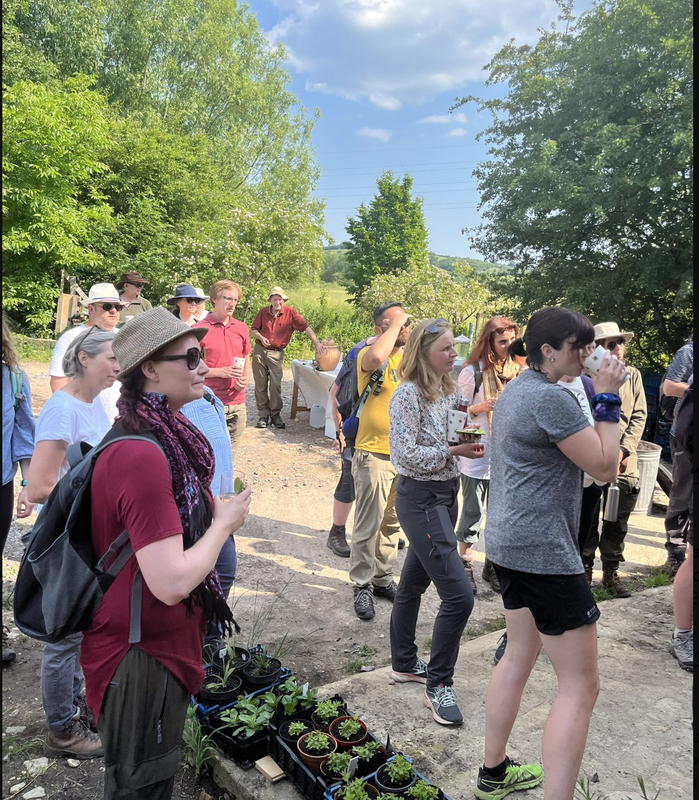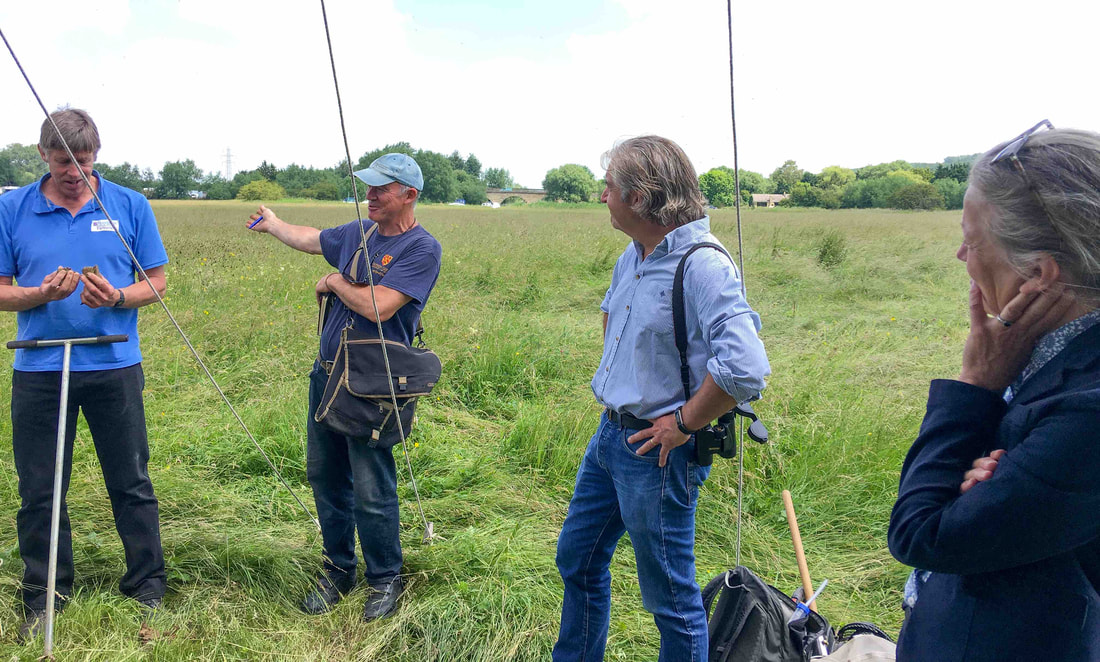In 2018, we initiated two major projects at Long Mead: The Long Mead Biodiversity Research Project and the Thames Valley Wildflower Meadow Restoration Project (TVWMRP). TVWMRP is a farmer and landowner-led initiative which aims to connect up the fragments of ancient floodplain wildflower meadow along the Thames (of which only 4 square miles remain in the UK) by restoring or re-creating the intervening meadows to create a continuous meadow network. Our neighbour to neighbour approach has meant that a continuous wildlife corridor is already forming up and downstream from Long Mead. In July 2020, we undertook the re-creation of Christ Church Meadows on the Thames in the centre of Oxford, using seed from Long Mead. (Runner up for Oxford University's Vice Chancellor's Award for Sustainability in 2023). In July 2021 we extended the floodplain meadow restoration at the Oxford end, opposite the Marston Meadows Sites of Special Scientific Interest (SSSI) on the Cherwell River by restoring 10 acres of meadow for Merton College. In 2023, we will help Oxford University Parks to restore another 1.5 acres close to Music Meadow. We have also donated seed from Long Mead to enhance Magdalen College Water Meadows.
Part of our restoration programme includes propagating slow growing and rarer species by hand. In this part of the project we include our carefarming participants (adults with learning disabilities and autism) with whom we have been work for two decades, together with members of the community. The group has grown organically since 2020 and we now find that we are also benefitting people with a wide range of mental and physical challenges.
In December 2020, we won a grant from Ecover in partnership with Open University and BBOWT, (UK winner of 770 applicants from three countries). We are restoring 50ha for this project. As part of this project, the Open University is studying carbon sequestration in floodplain meadows under restoration. Our first two years' data suggest that they may be as good as peat bogs at storing carbon.
The Thames Valley Wildflower Meadow Restoration Project was featured in Rivers to Coast, a documentary made for COP26 by Oxford University's Nature-Based Solutions Initiative (watch from 2mins 20secs).
As part of our research programme, we are carrying out long-term botanical surveys of restoration sites with members of the Corallian Group who are also members of Ashmolean Natural History Society of Oxfordshire. We are undertaking a long-term study of pollinators and other invertebrates in floodplain meadows and the extent to which their numbers and diversity might increase with habitat restoration. This study is being carried out by Mike Wilson of the Museum of Wales and Ryan Mitchell of the Natural History Museum in Oxford. We are also collaborating with Oxford University Zoology Dept (Global Malaise Program) and Oxford Brookes University, Conservation Ecology Programme and School of Education. In 2021, we got a Green Recovery Challenge Fund grant in partnership with the Freshwater Habitats Trust's Building Oxfordshire's Freshwater Network Project. This has contributed to our restoration and research in 2022-2023. We have also received significant funding from Natural England's Seedcorn Fund for the creation of Nature Recovery Networks. In June 2023, we presented our connected community approach to landscape-scale restoration to Natural England. NE Nature Recovery Network Advisors visited Long Mead from the 12 Regional Teams across the country.
Fundamental to our project is integration of floodplain hay meadows, and the knowledge of those who farm them, into 21st century agriculture and agricultural policy.


